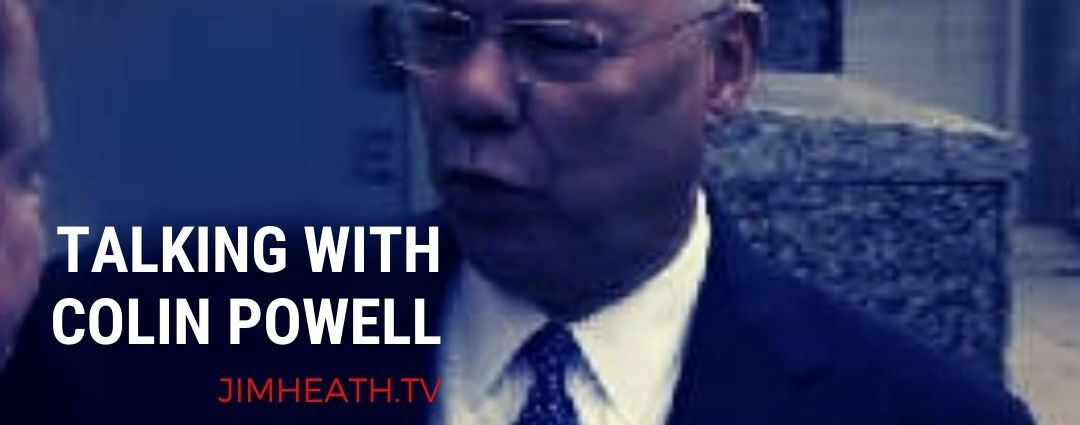They made it clear: Absolutely no interviews.
In late fall of 2012, former secretary of state Colin Powell, a Republican who had served in the Reagan and both Bush administrations, endorsed Barack Obama for reelection.
Powell was a pathbreaker, serving as the country’s first Black national security adviser, chairman of the Joint Chiefs of Staff and secretary of state.
By the time he retired from the military in 1993, Powell was the most popular public figure in America, owing to his straightforwardness, his leadership qualities and his ability to speak in blunt tones that Americans appreciated.
The next day he was scheduled to be at an event in Columbus, Ohio.
“Absolutely no press” is the word our assignment desk got from The Ohio State University officials when an interview was requested.
“Let me take care of that, put it in the rundown” is what I told the producers in the morning meeting.
I had no idea how, but I left the station determined to speak to him.
Powell was on the OSU campus to address thousands of people at the Young Scholars Program.
After we arrived, photographer Dave Schulte and I were escorted to the back of Mershon Auditorium and told we could record the first three minutes of his speech—but nothing else.
As I peered at the stage, I thought Powell could have been speaking from Mars, and it would have seemed as close.
Powell had made the endorsement on the CBS Morning Show the previous day.
“I think we ought to keep on the track that we are on, I voted for Obama in 2008 and I plan to stick with him in 2012.”
It was a disappointing development for Mitt Romney and his campaign, although not entirely unexpected.
So, here was one of the most popular political figures in America, in the biggest battleground state, and I stared at the stage perplexed on how to get him to talk to me.
Sensing my frustration, Schulte whispered to me, “I know where he has to exit.”
One thing I learned early on in this business is that a good story requires a reporter and photographer working together.
Teamwork.
And Schulte had my back.
I smiled at him, said “let’s go,” and we drove around to the back of the building where Powell’s car and driver were parked in front of a barely visible door.
Schulte got out and chatted with the driver who said Powell didn’t want to do interviews.
Then an official from Ohio State came outside to inform us Powell would be walking from the door straight into the back of the SUV.
“Would it be okay if we just stand here and maybe he’ll change his mind if he sees us?” I asked.
We were told, “okay, but it won’t do any good, he is not talking.”
About twenty minutes later, Powell emerged from the back door.
Every minute that had ticked by seemed like a million years to me because it was so cold standing outside.
“I am not leaving here without something,” I muttered to myself.
“Mr. Secretary, do you have a minute to talk about Ohio?” I shouted at him, doing my best impression of legendary White House reporter Sam Donaldson.
Powell, who had already opened his door, stepped back, paused, looked over and said, “sure.”
Dave and I walked up to the SUV and I asked Powell, based on his endorsement the previous day, what message he wanted to send to Ohioans before the election: “My advice for the wonderful people of Ohio is to take a look at the status of your state, how do you think it’s doing, and vote accordingly.”
Powell didn’t mention Obama directly, but seemed to direct his message to the handful of undecided Ohio voters remaining that the economy was improving and while Obama had not been the perfect president, many in 2012 believed he was still the better alternative.
“We are the super-people,” he told me. “There are no super-men or women who are coming. We the people are the ones who have to decide how best we’re going to be governed.”
When I asked him whether he was worried about the amount of money Super PACs for both presidential candidates were spending, Powell said, “if we reach a point where we prefer to destroy a person than debate a person, we’ll no longer recognize America.”
Like looking in a crystal ball, Powell offered a warning for the Trump era, which was about to begin.
